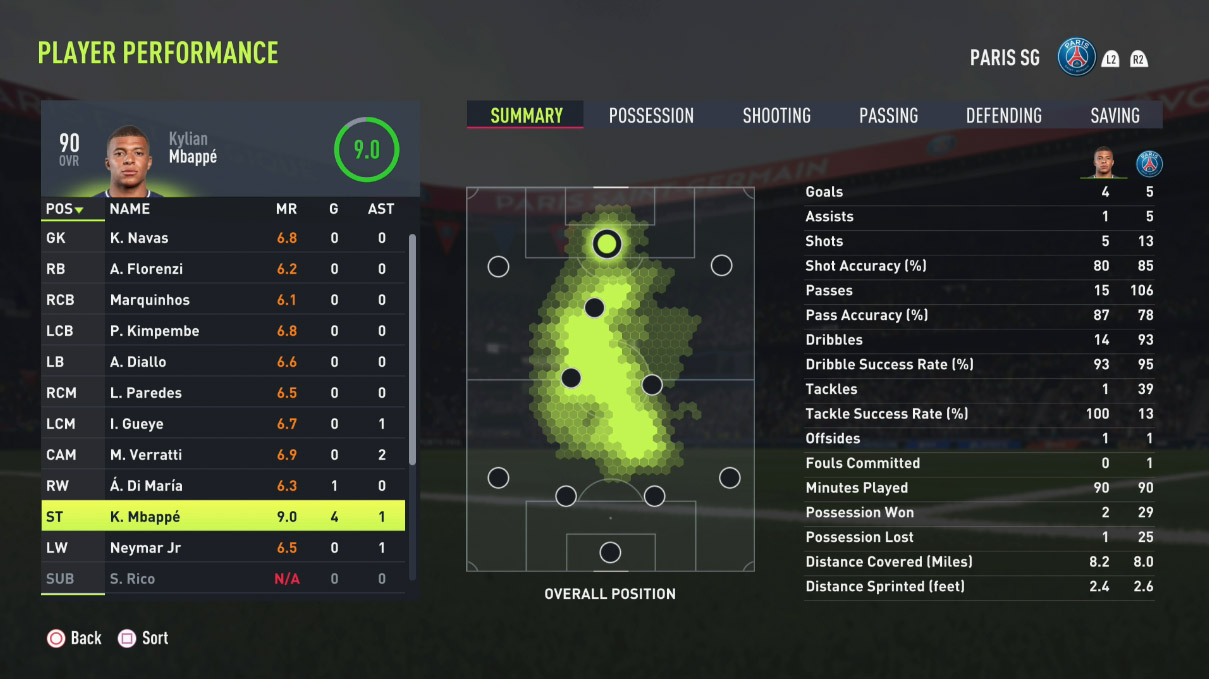Football has evolved dramatically in the last decade, and so has the way football video games, like EA SPORTS FC, assess and rate players. Central to EA’s approach is the use of real-life football statistics, which play an integral role in shaping the overall ratings of players within the game.
Real-Life Stats: The Core of Player Ratings
In EA SPORTS FC, player ratings aren’t arbitrarily decided by game developers. Instead, they are meticulously based on performance metrics pulled directly from real-world matches. These stats include key figures such as goals scored, assists, passing accuracy, interceptions, clearances, and dribbling success rates.
By utilizing these data points, EA ensures that players in the game reflect their on-pitch performances as accurately as possible. For example, if a player like Kevin De Bruyne consistently creates goal-scoring opportunities with high passing accuracy, his corresponding in-game ratings for passing and vision will likely be top-tier.

Statistics have increasingly defined how we view football, and now they drive the evaluation of players in the virtual world. In FC 24, not only are individual match performances considered, but the broader aspects of player style and consistency across an entire season or career are factored into their rankings. This shift in focus ensures that a player’s ratings aren’t based on a few standout matches but on sustained quality.
This reliance on data isn’t just limited to football games. Data is meaningful when making decisions in live games. Having access to Crazy Time statistics can help players understand the game better. Discover the best places to find and analyze Crazy Time game data for a more informed experience. Just as EA SPORTS FC relies on real-life stats to craft accurate player ratings, analyzing game data like Crazy Time statistics provides players with insights to make smarter decisions during live games.
Opta and the Role of Data Analytics
EA SPORTS has partnered with Opta, a leader in football data analytics, to incorporate vast amounts of real-time data to make player ratings even more precise. Opta collects stats across more than 200 leagues globally, ensuring that EA SPORTS FC gets a comprehensive dataset of each player’s performances. This data isn’t just for show—it directly impacts player ratings and now powers the PlayStyles and PlayStyles+ features in the game.

The PlayStyles feature allows players to mimic signature moves and traits from real life. For instance, a striker known for powerful headers, like Cristiano Ronaldo, might have a Power Header PlayStyle, while midfield maestros like Luka Modric might shine with a Tiki-Taka PlayStyle for their short-passing and creativity. This means that player stats directly influence not only how good a player is rated but also how they behave in-game.
Evolution of Football Analytics and Its Impact
Football analytics, once limited to simple stats like goals and assists, has evolved to include more complex metrics such as expected goals (xG), expected assists (xA), progressive passes, and pressing efficiency. These advanced stats have revolutionized the way football clubs scout, train, and analyze players, and they’re also changing how players are rated in games like EA SPORTS FC.
For example, a player who excels in high pressing—measured by metrics like pressing success and recoveries—will now have these elements reflected in their defensive ratings. Similarly, a midfielder with a high xA (expected assists) may see a boost in their creativity and passing skills in the game, even if they don’t tally numerous assists.

As football analytics have developed, EA has adapted to reflect these changes in their games. The use of player heat maps, possession data, and other advanced statistics means that a player’s in-game rating now captures more than just the flashy moments like goals and assists. It reflects the hard-to-spot elements of their play that impact a team’s overall performance, like positioning, tackling, and creating space for teammates.
The Future of Player Ratings in EA SPORTS FC
Looking forward, EA’s partnership with data providers like Opta is likely to expand. As clubs and broadcasters continue to embrace AI-driven analysis and tracking systems, EA can tap into even more specific data to inform player ratings. Metrics that analyze how a player performs under pressure, their off-the-ball movement, or their ability to read the game might eventually be mirrored in even greater detail within the game.
This level of detail pushes the game closer to mirroring reality, allowing players to experience the tactical depth of football in ways previously unattainable in video games. And as more fans and players get involved in the ever-growing world of football statistics, the demand for such accuracy will only increase.

The Power of Stats in Shaping EA SPORTS FC
In summary, real-life stats and football analytics have transformed the way players are rated in EA SPORTS FC. By relying on robust, real-time data from sources like Opta, EA can ensure that every player’s rating reflects their performance on the pitch, not just reputation or past success.
This focus on accuracy, coupled with evolving football analytics, ensures that EA SPORTS FC remains at the forefront of authenticity and realism in sports gaming. Whether you’re recreating a Haaland goal or orchestrating a Messi play, the stats behind these actions are what make it feel real.
This integration of real-world data is crucial for the future of gaming, offering players a deeper connection to the beautiful game. And with each iteration, we can expect more fine-tuned ratings as data continues to shape how we view football—both on the screen and in real life.
 FIFA Infinity The Absolute FIFA Site
FIFA Infinity The Absolute FIFA Site




